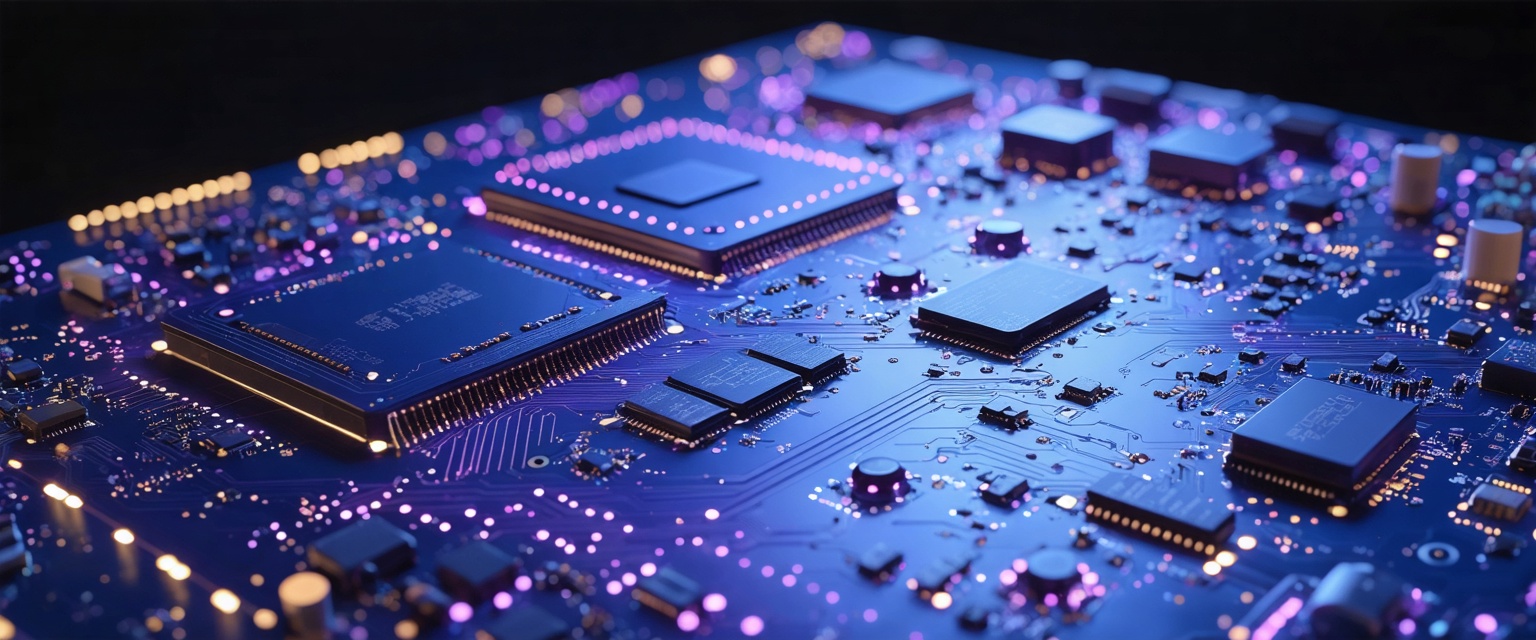Research shows that artificial intelligence, particularly AI agents, will be the top strategic technology trend of 2025, driving the next wave of intelligent applications. Unlike traditional automation, AI agents don’t just follow rules—they learn, adapt, and make decisions independently, reducing the need for constant human oversight.
As a key application of generative AI, these agents can understand context, generate responses, and take autonomous actions, making them far more dynamic than earlier AI models. By streamlining workflows and transforming decision-making, AI agents are reshaping how businesses operate. They are freeing employees from repetitive tasks so they can focus on work that fuels innovation and growth.
What Are AI Agents?
AI agents are autonomous systems designed to perform tasks with minimal human input, adapting and learning as they go. Powered by machine learning (ML), natural language processing (NLP), and deep learning, these intelligent systems exhibit advanced AI capabilities to analyze their environments, make decisions, and take action to achieve specific goals.
Here’s what sets AI agents apart:
- Autonomy: AI agents function independently, making choices and taking actions by processing large amounts of data through technologies like large language models (LLMs) and deep neural networks.
- Adaptability: They adjust their behavior based on new information or changes in their environment, making them ideal for dynamic situations where flexibility is key. For example, insights into coding agents have shown how AI agents can assist in software development by understanding and generating code. A deep understanding of their environment and tasks allows AI agents to navigate complex situations and provide more effective solutions.
- Interaction: Utilizing natural language processing (NLP), AI agents can communicate in human-like ways, making sophisticated technology accessible to everyone in an organization.
- Collaboration: AI agents can collaborate in systems, sharing knowledge and coordinating tasks to tackle complex problems.
How Do AI Agents Work with Natural Language Processing?
AI agents operate by observing their environment, planning their actions, and acting on those plans to achieve specific goals. They use a combination of technologies and components to perform their functions.
Here’s a bit of the logical framework they use:
- Observation: AI agents constantly collect and process information from their environment, which includes user interactions, key performance metrics, or sensor data. They use agent-centric interfaces, such as protocols and APIs, to connect to users, databases, sensors, and other systems, which allows them to observe their surroundings. AI agents can also retain memory across conversations, which provides ongoing context across multi-step plans and operations.
- Planning: Using large language models (LLMs), AI agents evaluate and prioritize actions based on their understanding of the problem, goals, context, and memory. The planning module uses the LLM to assemble appropriate plans for the agent to follow. AI agents are designed to anticipate user needs and proactively complete tasks.
- Action: AI agents leverage interfaces with enterprise systems, tools, and data sources to perform tasks that the plans delivered by the LLMs govern. The action module includes the APIs and system integrations that define the universe of actions available to the agent.
- To execute tasks, the AI agent may access enterprise services, delegate actions to other AI agents, or ask the user for clarification. They can make decisions and take action autonomously with minimal human intervention.
- Adaptation and Learning: The observe-plan-act cycle is self-reinforcing because AI agents continuously analyze how the world has changed based on past interactions and learn how to be more efficient and effective over time.
They can learn from their experiences, storing them in memory to improve future iterations. Plus, they can detect errors, fix them, and learn through multi-step plans and internal checks.
The Growing Impact of AI Agents in the Workplace
AI agents are already reshaping the workplace, even in these early stages of adoption, by transforming the roles of human workers. Their potential to streamline operations, enhance productivity, and drive innovation is undeniable. However, like any disruptive technology, their impact isn’t purely positive—they bring both opportunities and challenges that businesses must navigate.
- Task Automation: AI agents are used to automate mundane and repetitive tasks such as data entry, scheduling, and inventory management. This allows human employees to focus on more creative and strategic endeavors. For example, AI-powered scheduling assistants can arrange meetings without human intervention, saving time and minimizing scheduling conflicts.
- Enhanced Decision-Making: AI agents can process large amounts of data, identify trends, and offer insights that improve decision-making processes. In sales, for example, AI agents can analyze customer data to predict purchasing patterns and recommend personalized offers.
- Streamlined Communication: AI agents can manage inquiries and streamline the flow of information across departments. AI-powered chatbots can handle customer queries around the clock and escalate complex issues to human agents when needed.
- Improved Efficiency: By automating routine tasks, AI agents enhance overall productivity and enable employees to engage in higher-value work that drives innovation and organizational growth. AI agents can operate around the clock without fatigue, ensuring that tasks are completed consistently and promptly.
- Scalability: AI agents can easily adapt to increased workloads without the need for proportional increases in staffing. This flexibility allows companies to maintain high levels of performance and service quality even during periods of expansion.
AI agents are changing how work gets done within organizations, helping with understanding individual roles and how to personalize experiences. They are also being used to address common business challenges, such as streamlining HR processes, optimizing supply chain management, enhancing customer service, and improving financial planning and analysis.
However, the integration of AI agents also necessitates careful ethical considerations to ensure fairness and mitigate bias in the workplace.
The Evolution of AI Agents
In the early days of AI, systems were built on strict rules—think, “If X, then Y.” While this worked for well-defined tasks, these rule-based systems couldn’t handle unexpected changes or new situations. For example, early expert systems in medical diagnostics could follow predefined paths but struggled with nuanced or evolving cases.
This limitation led to a shift toward intelligent agents—programs that can perceive their environment, learn from it, and make decisions to achieve goals. Thanks to advancements in machine learning and increased computing power, these agents moved beyond static rules to more flexible, data-driven approaches.
Advancements in technology have made it easier to build AI agents that can understand tasks and predict next steps, enhancing productivity and reducing the need for human intervention.
Today, intelligent agents use technologies like generative AI and large language models (LLMs) to handle complex tasks, manage workflows, and interact naturally with users.
Advancements in structured generation with AI enable AI agents to produce more organized and reliable outputs, enhancing their effectiveness in various applications. A McKinsey report highlights how these agents can understand natural language instructions and automate tasks that once required human intervention—from software development to orchestrating business processes.
This evolution—from rigid rules to adaptable agents—marks a significant milestone in AI’s progress.
By incorporating natural language processing, intelligent agents make advanced AI accessible, reducing the need for specialized technical skills. As businesses embrace these agents, they’re unlocking new productivity levels and transforming operations across industries.
How AI Agents Are Transforming Industries and Business Functions
AI agents are driving meaningful change across industries, starting at the organizational level and rippling outward. From automating processes to enhancing decision-making, their influence is reshaping how work gets done.
Let’s explore some of the key industries and business functions where AI agents are making the biggest impact.
- Retail: AI enhances marketing through targeted campaigns, smarter pricing, and better supply chain management, resulting in higher ROI and lower costs.
- Pharmaceuticals: AI speeds up drug discovery by analyzing vast data to predict outcomes more accurately, shortening development times and reducing costs.
- Finance: AI agents are used in financial planning and analysis to identify trends, generate predictions, and offer insights for decision-making. They can also manage exceptions and create financial rules, as well as automate tasks like payroll management and financial reporting, reducing manpower costs and human errors.
- Manufacturing: Predictive AI-powered maintenance reduces equipment downtime, increases efficiency, and improves product quality.
- Supply Chain and Logistics: AI optimizes warehouse operations and shipment tracking, optimizes supply chains with AI, and improves inventory management and customer satisfaction.
- Healthcare: AI agents are used to streamline patient care, assist in diagnostics, and improve resource management. They can also help with lead generation, reduce cycle times, and increase time efficiency for drafting clinical study reports. Additionally, they are used to automate data input tasks and process vast amounts of data accurately.
Remember, because AI agents handle vast amounts of sensitive data, ensuring data privacy and security is crucial to prevent breaches and misuse.
The Workforce in the Age of AI
AI is redefining how work gets done, transforming job roles, enhancing employee experiences, and reshaping workplace dynamics. As businesses adapt, AI is proving to be more than just a tool—it’s a catalyst for change.
While AI can automate many tasks, uniquely human skills such as emotional intelligence and complex decision-making remain essential for success in the workplace.
Here’s how AI is actively shaping the future of work:
Evolving Job Roles
AI isn't just about machines taking over tasks—it's about transforming how we work. By automating repetitive duties, AI allows employees to focus on creative, strategic, and higher-value activities. In customer service, for example, AI handles routine inquiries, freeing human agents to tackle complex issues and provide better support.
Teams now incorporate "agentic workflows," where AI agents and humans collaborate. Platforms like Appian and Salesforce use these workflows to streamline processes, change the way tasks are completed, and improve efficiency.
While there's concern about job displacement, AI is also creating new roles, particularly in AI governance and ethics. Businesses must focus on reskilling employees to adapt to technological changes and strategically aligning AI with business objectives, ensuring the workforce remains relevant and capable in an AI-enhanced environment.
Enhancing Employee Experience through Human AI Collaboration
AI improves not just what we do but how we feel at work. By automating mundane tasks, employees can engage in more meaningful work, leading to greater job satisfaction. AI tools also provide valuable insights without adding complexity, aiding decision-making and productivity.
For example, SAP Business AI helps companies create a future-ready workforce by aligning employee goals with company objectives and offering personalized development opportunities. This approach supports skill growth and keeps employees engaged and fulfilled.
By enhancing career development paths and learning opportunities, AI helps employees take charge of their professional growth. This leads to higher retention rates and a more dynamic, satisfied workforce. As AI evolves, balancing technological advances with human-centered strategies will be key to business success.
Navigating the Challenges and Ethics of AI Agents
Bringing AI agents into the workforce isn’t without its hurdles. Organizations must tackle key ethical and operational challenges to ensure AI is implemented fairly, transparently, and responsibly. From job displacement concerns to the need for clear oversight and accountability, addressing these issues is essential for a balanced and sustainable AI-driven workplace.
Job Displacement
A primary concern is that AI agents, with their advanced machine-learning capabilities, can perform tasks traditionally handled by humans. This can potentially lead to unemployment in certain sectors.
While some jobs may be displaced, AI is also expected to create new roles, particularly in AI system design, data analysis, and AI programming.
Therefore, it's crucial to focus on workforce reskilling and adaptation.
Skill Gaps
Introducing AI agents necessitates a proactive approach to re-skilling employees, requiring them to understand AI systems and integrate them into their workflows. Regular training programs are essential to equip employees with the necessary technical knowledge and foster a culture of continuous learning.
Integration Complexities
Integrating AI agents into existing workflows requires a strategic and coordinated approach to mitigate potential disruptions. Organizations must collaborate with AI vendors and industry experts to design tailored integration strategies and conduct pilot tests before full-scale deployment.
Privacy Concerns
AI agents often handle vast amounts of sensitive data, necessitating stringent measures to protect personal information and ensure compliance with data protection regulations. There are concerns about the use of AI in monitoring employee performance and behavior, which may lead to decreased morale if not handled properly.
What's Next for AI?
AI agents are scary good, but that doesn’t mean AI has reached its full potential. It’s a significant step in its evolution, marking a shift towards more autonomous and collaborative AI systems.
The possibilities for this are endless.
Here are a few predictions based on the current AI trends:
- Agent Swarms: The development of interconnected autonomous agents, or agent swarms, is poised to revolutionize complex problem-solving by performing tasks on a much larger scale than previously possible. These swarms of AI agents can be deployed to tackle challenges collectively and interact with various systems.
- Integration with Existing Systems: AI agents are being designed for seamless integration with existing systems, facilitating smoother workflows and better data management. This also involves the ability to access internal and external systems and connect to various tools to perform tasks.
- Focus on Human-AI Collaboration: The future of work involves humans and AI agents working together as teammates. AI agents are not meant to replace humans but to augment human capabilities and allow workers to focus on more creative and strategic tasks. This collaboration includes AI agents providing insights and supporting decision-making.
- New Business Models: AI agents will also unlock new business models and accelerate productivity by automating and managing tasks, freeing workers to be more creative and productive. This means organizations can scale faster and become less dependent on hiring to grow.
AI Agents and the Future of Work
AI agents are revolutionizing the workplace—automating repetitive tasks, enhancing decision-making, and unlocking new levels of efficiency. From retail and finance to manufacturing, AI is reshaping industries by improving customer experiences, driving productivity, and fueling innovation.
Companies that embrace AI strategically stand to gain a competitive edge, with benefits like cost savings, smarter workflows, and increased agility. But successful AI adoption isn’t just about speed—it’s about responsibility. Businesses must prioritize data integrity, fairness, and transparency to ensure AI-driven solutions are both ethical and effective.
Navigating the AI Landscape with Confidence
As AI evolves, the right expertise can be the difference between leading the charge or struggling to keep up. Tribe AI connects businesses with world-class AI talent, helping organizations design, implement, and scale AI solutions that drive real impact.
We don’t just help companies adopt AI—we help them do it right. From strategy to execution, our experts guide businesses through the complexities of AI, ensuring it aligns with goals, ethics, and industry best practices.
Whether you're exploring AI for the first time or looking to take your AI initiatives further, Tribe AI is your partner in building the future.








.jpeg)




